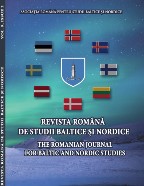Acculturation or autonomy? Controversy over the status of the Sámi in Finland during the interwar period
Acculturation or autonomy? Controversy over the status of the Sámi in Finland during the interwar period
Author(s): Kari ALENIUSSubject(s): History, Social Sciences, Language studies, Language and Literature Studies, Cultural history, Communication studies, Recent History (1900 till today)
Published by: Asociatia Romana pentru Studii Baltice si Nordice
Keywords: Ethnic relations; multiculturalism; Finland; Sámi; self-government;
Summary/Abstract: The newly independent Finland in the 1920s and 1930s was, in principle, a nation state in which ethnic Finns had an undisputed leading position. Nevertheless, there was a lively debate about the status that would be given to other nationalities in various spheres of social life. The Swedes were the country’s main national minority (accounting for 10 per cent of the total population), and they were granted extensive minority rights. Another locally significant minority were the Sámi who lived in northern Lapland. This paper analyses the extent to which the majority population was willing to meet the wishes of the Sámi. Some Finns were in favour of the Sámi being acculturated as quickly as possible, but a few activists would have liked to grant the Sámi broad autonomy. Several ministries and government agencies investigated the matter thoroughly, but the result was negative for the Sámi.
Journal: Revista Română de Studii Baltice şi Nordice
- Issue Year: 13/2021
- Issue No: 1
- Page Range: 7-28
- Page Count: 22
- Language: English, Romanian

